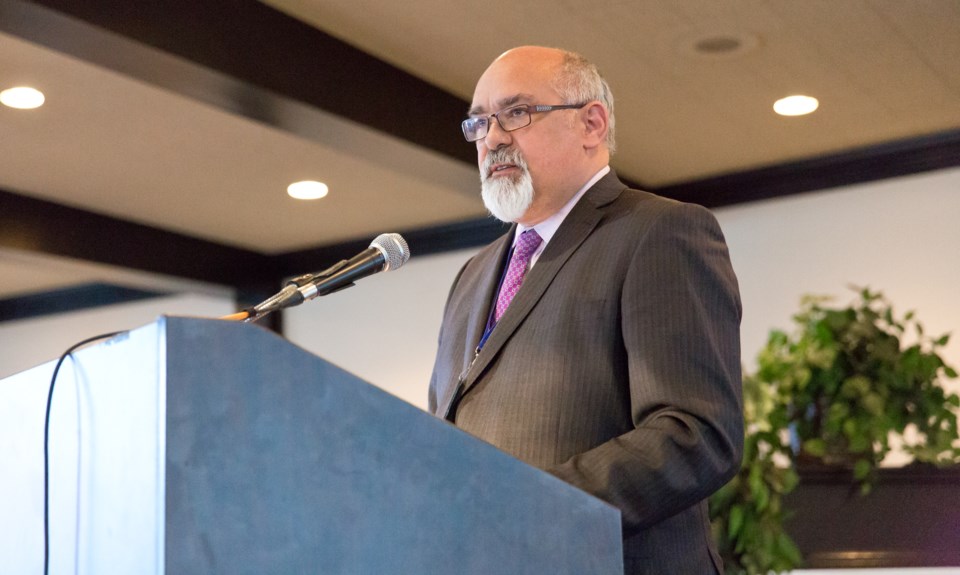Delta Hospital could see its medical beds almost double over the next few years.
That was one of the highlights of the facility's master site plan discussed at the Fraser Health Authority's public board of directors meeting Wednesday in Ladner.
The meeting at the Delta Town & Country Inn, which included presentations from health region president and CEO Dr. Nigel Murray and Delta Hospital site director Annette Garm, was a chance for locals to learn what's in store for the hospital over the next 10 to 15 years.
"As you know, although it's a little hospital, we think it's a mighty hospital and we're very proud... Our common goal is to provide excellent acute care health services to this community," said Garm.
Delta Hospital has seen demand for its services steadily increase to the point last year it accommodated over 31,000 ER visits, close to 9,000 surgical day visits, 34,000 ambulatory care service visits, over 500,000 laboratory tests and 29,000 diagnostic imaging procedures.
That demand will only grow with the 65 and over segment of Delta's population projected to reach 25 per cent in the next 15 years.
Three years ago, Fraser Health launched a planning initiative aimed at determining what services the Ladner hospital should provide as well as what building additions would be required. What came out of that was the master plan containing short-term goals and long-term objectives.
An expansion of the diagnostic imaging and lab department was identified as the top priority over the next five years. The Delta Hospital Foundation has since committed $7.5 million of the estimated $12 million price tag for the project.
Noting 44 of the hospital's 58 beds are acute care, Garm told the audience on Wednesday that increasing the number of medical beds was seen as a necessity due to the changing demographic profile, estimating around 108 medical beds would be needed.
She added that while the hospital currently doesn't have any mental health beds, it's hoped that if the strategic vision's goal of a 200-bed residential care facility was built, at least 25 of those beds could be dedicated for geriatric patients with mental health issues.
She said an on-site community health centre is also part of the strategic vision, as well as increasing the availability of diagnostic services and other improvements, such as adding an echocardiogram unit.
In his presentation, Murray wasn't as committal, saying future additions at the hospital "could" include an expansion of beds.
He also warned that the intense growth of the region is placing pressure on the current hospital infrastructure of Fraser Health, resulting in "congestion and other service challenges."
He noted a lack of current capacity is one of the most serious issues.
"It is why we are aggressively building and campaigning for further capital investment. This growth means serious challenges to keep pace with the demand for services. Unless capacity increases, unless capital investment dollars continue to flow, our ability to serve the public to the highest standards of efficiency, waiting times and overcrowding could be challenged," he said.
Wednesday's public meeting also included the FHA board discussing several reports as well as answering questions from the public. Only a few pertained to Delta health care or hospital issues, including concerns by Alastair Thurley, a clinical nurse educator at the hospital, who told the board a lack of specialists there was creating stress on staff and bringing morale down.
Murray acknowledged the challenge, saying the region was looking for innovative ways of attracting specialists as well as looking at greater use of technology such as telemedicine.
Other issues raised included transportation as former Delta Hospital Auxiliary president Byrel Matthewson suggested a free shuttle bus could be a useful way to get seniors to outpatient clinics and hospitals.
The board on Wednesday acknowledged the huge contributions of the Delta Hospital Foundation and Delta Hospital Auxiliary.



